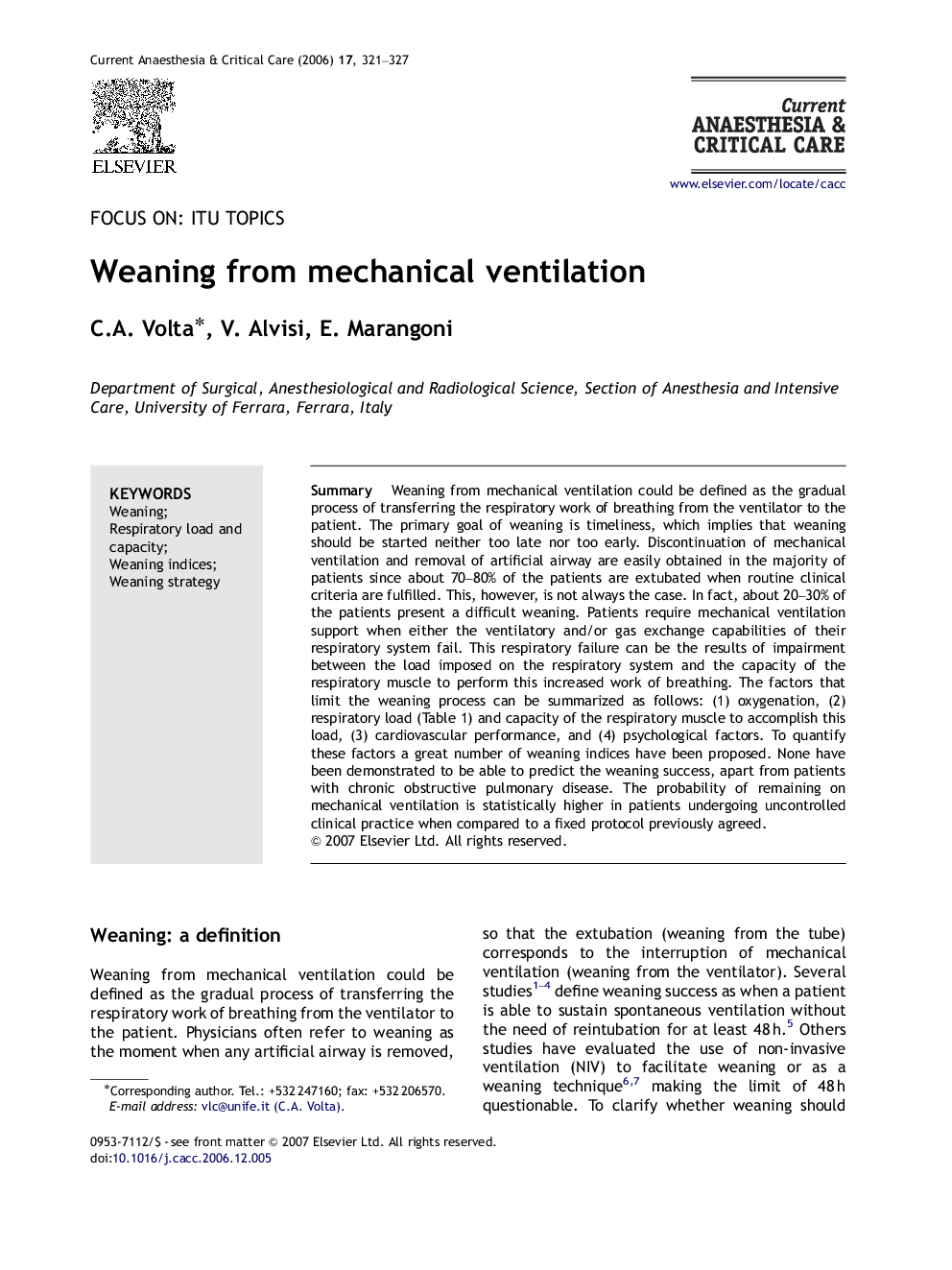| کد مقاله | کد نشریه | سال انتشار | مقاله انگلیسی | نسخه تمام متن |
|---|---|---|---|---|
| 2608057 | 1562792 | 2006 | 7 صفحه PDF | دانلود رایگان |

SummaryWeaning from mechanical ventilation could be defined as the gradual process of transferring the respiratory work of breathing from the ventilator to the patient. The primary goal of weaning is timeliness, which implies that weaning should be started neither too late nor too early. Discontinuation of mechanical ventilation and removal of artificial airway are easily obtained in the majority of patients since about 70–80% of the patients are extubated when routine clinical criteria are fulfilled. This, however, is not always the case. In fact, about 20–30% of the patients present a difficult weaning. Patients require mechanical ventilation support when either the ventilatory and/or gas exchange capabilities of their respiratory system fail. This respiratory failure can be the results of impairment between the load imposed on the respiratory system and the capacity of the respiratory muscle to perform this increased work of breathing. The factors that limit the weaning process can be summarized as follows: (1) oxygenation, (2) respiratory load (Table 1) and capacity of the respiratory muscle to accomplish this load, (3) cardiovascular performance, and (4) psychological factors. To quantify these factors a great number of weaning indices have been proposed. None have been demonstrated to be able to predict the weaning success, apart from patients with chronic obstructive pulmonary disease. The probability of remaining on mechanical ventilation is statistically higher in patients undergoing uncontrolled clinical practice when compared to a fixed protocol previously agreed.
Journal: Current Anaesthesia & Critical Care - Volume 17, Issue 6, 2006, Pages 321–327